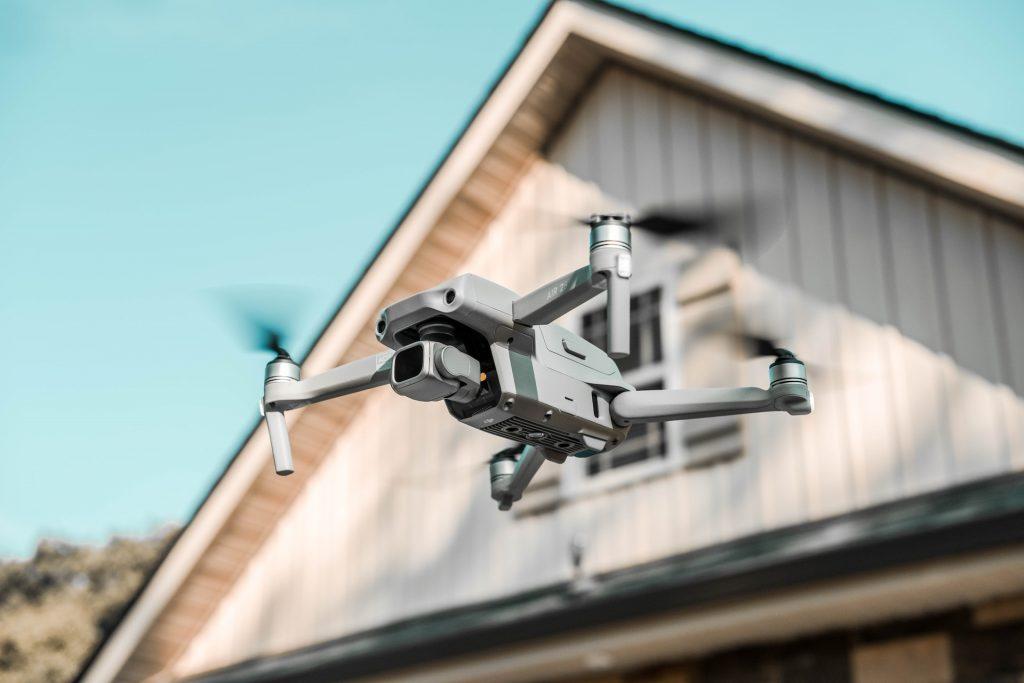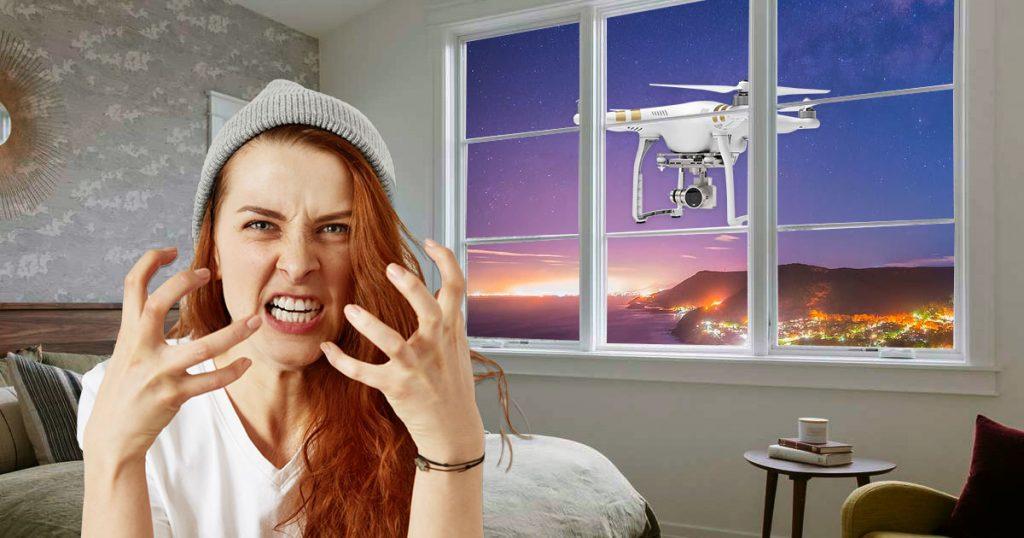Drones, formerly a futuristic idea, have now transformed into a frequent presence in our skies. They serve various purposes, from recreational photography and videography to commercial applications like package delivery and surveillance. While drones offer many benefits, it’s not uncommon for concerns to arise when one is spotted hovering over your property. What should you do when you see a drone flying over your house? Are there legal restrictions on dealing with this situation? In this comprehensive guide, we will explore how to stop drones from flying over your house and provide insights into how to handle such scenarios without getting into legal trouble.
Is It Illegal for Drones to Fly Over Other People’s Property?
As the presence of drones becomes increasingly common in our skies, homeowners and property occupants often wonder about the legality of drones flying over their residences. The answer to this question is multifaceted, shaped by a complex interplay of federal, state, and local laws and regulations.
The FAA’s Jurisdiction Over National Airspace
The Federal Aviation Administration (FAA) has a crucial role in overseeing drone activities in the United States. In accordance with federal legislation, particularly the Air Commerce Act, the U.S. government claims exclusive authority over navigable airspace, a comprehensive term encompassing the airspace accessible for public travel. This means that federal regulations established by the FAA generally take precedence over state and local laws when it concerns drone operations in the airspace.
However, this federal authority doesn’t imply that you, as a homeowner, have no say in what occurs over your property. Instead, it underscores the need to understand the balance between your property rights and drone operations governed by the FAA.
How To Keep Drones Off Your Property?

While drones are permitted to fly over private property under certain conditions, there are steps you can take to ensure your privacy and protect your property rights:
1. Know the FAA Regulations
Familiarizing yourself with the FAA regulations governing drone flights is a proactive approach to safeguarding your property. In most cases, drones are permitted to operate above private property as long as they comply with the safety regulations established by the FAA. These guidelines include maintaining an altitude below 400 feet and avoiding restricted airspace.
2. Contact the Operator
When you notice a drone flying over your property and its activities appear harmless, consider reaching out to the operator if it’s safe to do so. Numerous drone enthusiasts or photographers might be unaware that they are encroaching upon an individual’s privacy. A polite and informative conversation can often resolve the issue amicably.
3. Use No-Fly Zones
Some drones come equipped with built-in software that enforces flight restrictions in certain areas, such as proximity to airports or sensitive government facilities. To determine if your property falls within a designated no-fly zone, you can refer to resources provided by the FAA. In case you suspect a violation, reporting it to the FAA is a constructive step.
4. Install Privacy Barriers
To maintain your privacy, you can erect tall fences or employ natural barriers like trees and shrubs around your property. While these measures may not physically block a drone’s path, they serve as a deterrent to operators by making it challenging to approach too closely.
5. Seek Legal Assistance
In instances where you believe that a drone operator is recurrently infringing upon your privacy or violating your property rights, consider consulting with an attorney who specializes in drone-related legal matters. Such professionals can guide how to protect your rights within the boundaries of the law, ensuring a lawful and peaceful resolution.
Are There Things I Can’t Do When A Drone Is Flying Over My House?
While it is essential to protect your privacy and property rights, it is equally crucial to acknowledge the limitations of your actions when a drone is flying over your house. Engaging in unlawful activities in an attempt to address the situation can lead to severe legal consequences. Here are actions you should avoid:
1. Shooting Down a Drone
Despite the temptation, shooting down a drone is both illegal and perilous. Under federal law, drones are classified as aircraft, and deliberately damaging or shooting down an aircraft is a federal offense. Engaging in such actions can result in significant criminal charges, subject to both federal and local laws.
2. Jamming or Interfering with Signals
Endeavoring to disrupt a drone’s radio communications through the use of signal jammers or interfering with its control signals is illegal in most countries, including the United States. Such actions can lead to substantial legal penalties, including fines and imprisonment.
3. Physical Altercation
Confronting a drone operator physically or attempting to coerce them into landing their drone is an unwise course of action. Instead, contact local authorities or law enforcement to address the issue peacefully and within the bounds of the law.
What Legal Trouble Can I Get Myself Into If I Destroy the Drone?
Engaging in the destruction of a drone flying over your property carries significant legal consequences. According to federal law, drones are categorized as aircraft, and intentionally causing damage to or shooting down an aircraft constitutes a federal offense. Penalties for such actions can be severe, encompassing substantial fines and imprisonment. Furthermore, you could be financially responsible for covering the expenses associated with replacing the harmed drone.
Furthermore, attempting to bring down a drone poses inherent risks, including the potential for injuries to yourself or others. In such cases, you may face additional legal consequences, including criminal charges related to reckless endangerment or assault.
Bottom Line
While the sight of a drone flying over your house may raise concerns, it’s crucial to approach the situation with a clear understanding of the laws and regulations that govern drone operations. Opting for legal and non-confrontational approaches to deal with your concerns is the most advisable course of action. Familiarize yourself with the FAA guidelines, maintain open communication with drone operators, and seek legal assistance if necessary. Remember that shooting down, jamming, or physically confronting a drone can lead to severe legal repercussions. By staying informed and respecting the law, you will know the correct action to take on how to stop drones from flying over your house.
